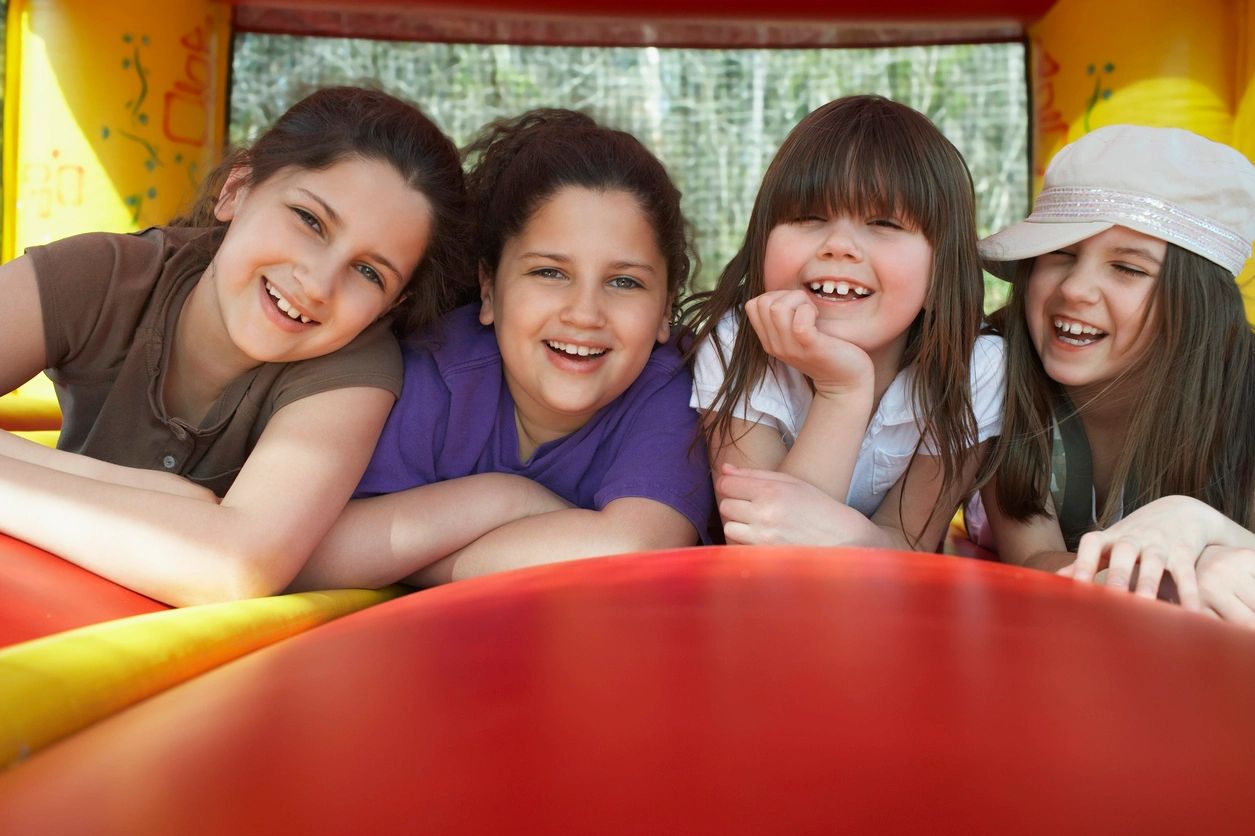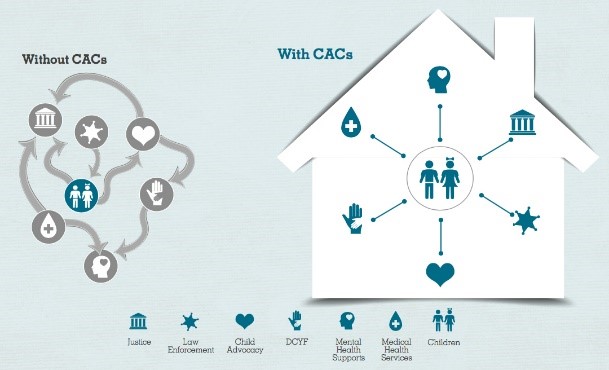Therapies We Use to Address Trauma in Children and Adults
Mountain Child Advocacy Center Provides:

Children's Advocacy Centers Are the Best Way to Get Abused Kids All the Services They Need
All in one place, and to help kids go on to thrive. Here's how CACs work.
To Understand What a Children’s Advocacy Center (CAC) Is
You must understand what children face without one. Without a CAC, the child may end up having to tell the worst story of his or her life over and over again, to doctors, cops, lawyers, therapists, investigators, judges, and others. They may have to talk about that traumatic experience in a police station where they think they might be in trouble, or may be asked the wrong questions by a well-meaning teacher or other adult that could hurt the case against the abuser.
Graphic From Children’s Alliance Showing the With or Without CAC

Without CACs vs With CACs
When police or child protective services believe a child may be experiencing abuse, the child is brought to the CAC—a safe, child-focused environment—by a caregiver or other “safe” adult. At the CAC, the child tells their story once to a trained interviewer who knows the right questions to ask in a way that does not re-traumatize the child. Then, a team that includes medical professionals, law enforcement, mental health, prosecution, child protective services, victim advocacy, and other professionals make decisions together about how to help the child based on the interview. CACs offer therapy and medical exams, plus courtroom preparation, victim advocacy, case management, and other services. This is called the multidisciplinary team (MDT Advocacy) response and is a core part of the work of CACs.
